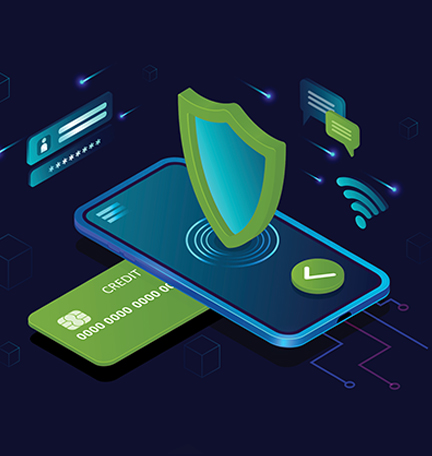Ensure your employees enjoy the benefits of commercial cards while helping to minimize misuse and preventing fraud.
Commercial cards can free up employees to do their best work while streamlining expense reporting for your back office. But for employees, the freedom of an expense account comes with the responsibility of using the commercial card appropriately.
By following these best practices, you can prevent commercial card misuse and unlock the benefits of an expense account program for your organization.
Establish Clear Guidelines for Using Commercial Cards
Be proactive in leading a discussion around employee misuse of commercial cards. This should start during employee training. Present the reasons why you’re granting employees the privilege of a commercial card and reinforce that the system only works when the card is used responsibly and in accordance with company policy.
Remember, employees are more likely to use their commercial card properly if the rules are easy to understand and access. It’s critical to ensure that every employee with a commercial card knows where to find the latest policies — and that those policies are clearly explained.
Here are three areas that every commercial card policy should cover:
1. Commercial card access
It’s important to clarify who, exactly, has permission to use a commercial card. Are they only to be used by specific employees? Or are they for larger teams or departments? The specifics of each commercial card policy will be unique to your business, but there should be no question as to who is authorized to use a commercial card.
2. Commercial card spending limits
Employees need to know how much they’re allowed to spend on the commercial card, whether it’s per month, per week or per transaction. If certain spending thresholds require special permission or documentation, clearly communicate what those milestones are and what procedures employees need to follow before and/or after they’re met.
3. Commercial card qualified expenses
Not every purchase can be put on a commercial card. Employees must have a clear framework for deciding what’s a valid business expense and what should go on a personal card instead. Provide relatable examples to demonstrate the rules and to show employees that you understand that sometimes the line between our work and personal lives isn’t so obvious.
Keep in mind that even the most straightforward commercial card policies will usually include some exceptions or special circumstances that require extra documentation or permission. Be sure to explicitly call out those instances and outline the steps that must be followed as a result.
4. Steps to take if fraud is suspected
Lay out a clear plan of action for employees to follow if they suspect fraud on their commercial card. Give them a point of contact — whether it’s their manager, HR, or accounting personnel — who they should report it to immediately.
Regularly Monitor Employee Commercial Card Accounts
Monitoring accounts and expenses — and letting employees know that you are doing so — is crucial to ensure that established guidelines are followed. When account activity indicates that an employee isn’t following the policy, it could mean that they are knowingly misusing their corporate account. Or, instead, it may indicate that your commercial card policy is not clearly communicated. When red flags for potential misuse or fraud are observed, collect the facts, have an open and honest conversation with the employees involved, and make an informed decision about the most productive path forward.
Create a Culture of Awareness
Remind employees to protect their commercial card as they would their personal card — and if their commercial card goes missing, it should be reported immediately.
Ensuring that your employees understand what’s expected of them as they use their commercial cards may help your organization avoid misuse. Ultimately, education, documentation, and open conversation can support your organization’s fraud awareness and prevention efforts in the long run.
For more tips and resources, visit regions.com/fraudprevention.











